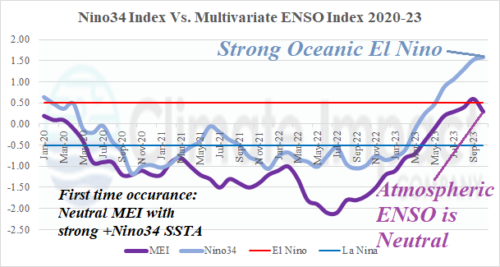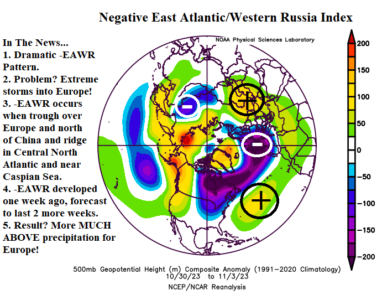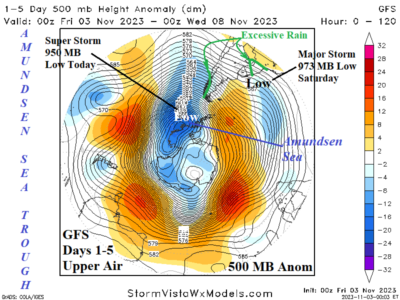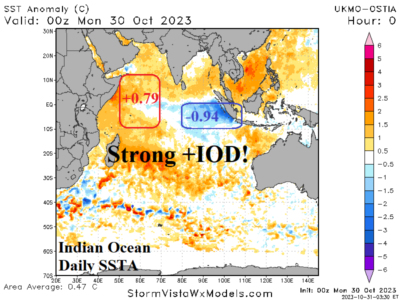11/09/2023, 2:09 pm EST
In October 2023, the Nino34 SSTA index was +1.59C which eclipses the +1.50C threshold for strong oceanic El Nino classification. However, the response of the atmospheric climate pattern to the El Nino warming is weak yielding neutral multivariate ENSO index (MEI = +0.3) during SEP/OCT 2023. Preliminary investigation reveals this is a first-time occurrence for a strong oceanic El Nino.
![Climate-Impact-Company-logo-sm[1]](https://climateimpactcompany.com/wp-content/uploads/2023/08/Climate-Impact-Company-logo-sm1.png)



